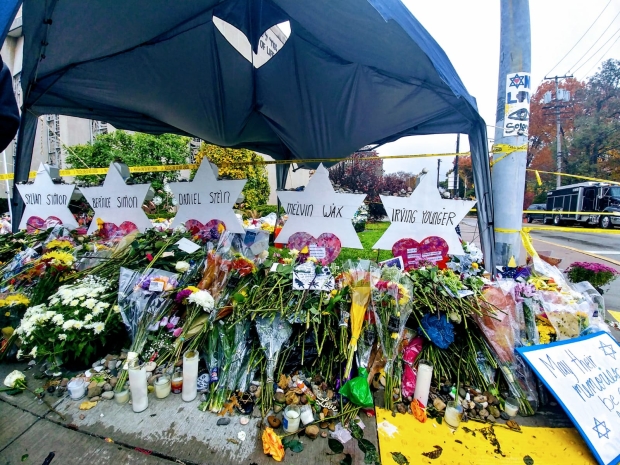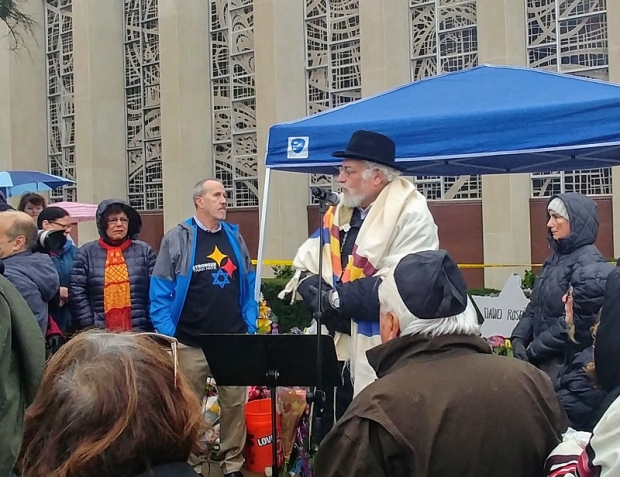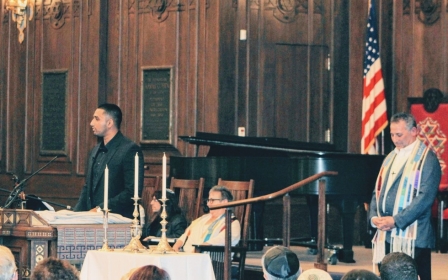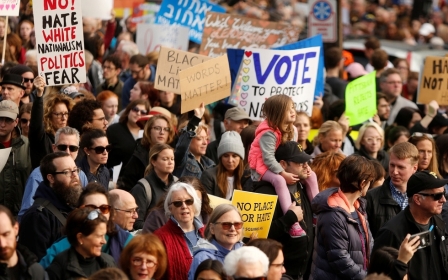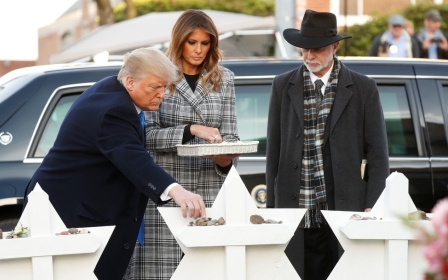Jewish refugee aid group in Pittsburgh undeterred by synagogue shooting
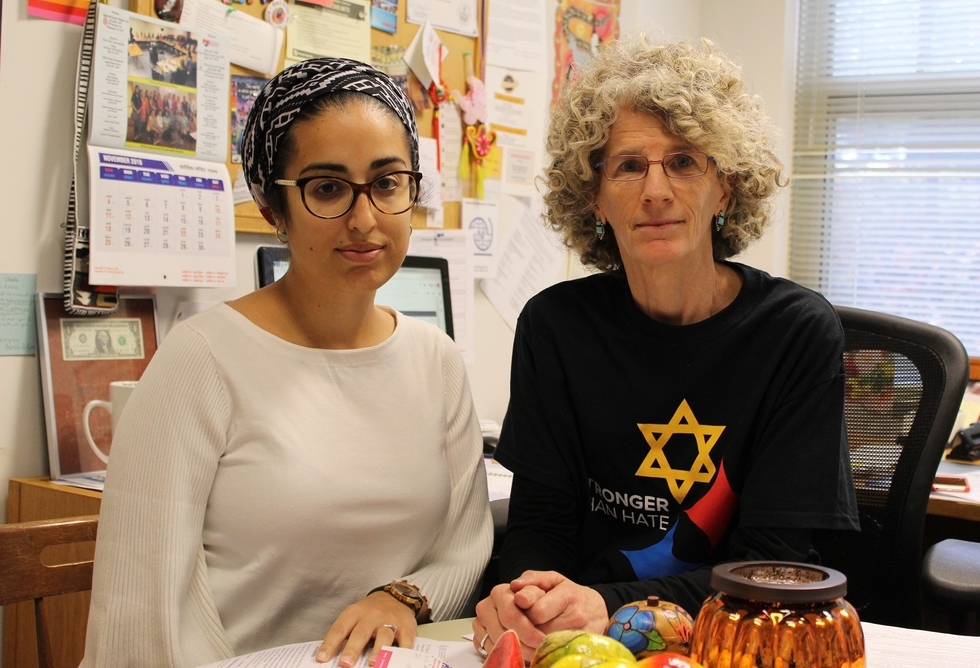
PITTSBURGH, United States - Leslie Aizenman, director of refugee and immigrant services at a Pittsburgh Jewish humanitarian agency, says that last week's synagogue massacre targeted everything that she and her group represent.
"We are a Jewish-serving agency. Many of us are Jewish. We live here. I belong to that synagogue, and then it's my life's work," she said. "So, I couldn't even comprehend."
Still, the tragedy will not stop Aizenman and her colleagues from continuing their work at Jewish Family and Community Services (JFCS), a few blocks away from the Tree of Life Congregation where one week ago a gunman took the lives of 11 worshippers.
Before the attack, the alleged shooter had fumed in an anti-Semitic social media rant against the Hebrew Immigrant Aid Society (HIAS), a Jewish non-profit that helps resettle refugees. "HIAS likes to bring invaders in that kill our people," he wrote.
JFCS works with HIAS to provide a host of services to help resettle refugees in Pittsburgh.
With the anti-refugee sentiment added to the alleged shooter's anti-Semitic motives, the attack felt personal for Aizenman and JFCS.
I'm not going to stop ... There's some fear, but we're more committed.
- Leslie Aizenman, JFCS
"We're the ones working with HIAS; we're the ones doing the work," Aizenman told MEE.
She said the shooting has caused her some emotional turmoil, but added: "I wanted to be here; I'm not going to let it stop me."
JFCS, through HIAS, works with refugees from around the world from the time they arrive in the US.
"We welcome them at the airport. We will have already prepared an apartment for them with basic furnishing. Then we bring them to their new home, and then we connect them to many different services," Aizenman said.
Further assistance includes setting up doctor appointments, helping children to enrol in school, English classes and employment programmes. Moreover, JFCS uses interpreters to help newcomers access existing services available to the broader public.
"Even before this, there were a lot of people who didn't like what we're doing. I'm used to that," Aizenman said. "I've spent a lot of time talking to local residents about who refugees are and educating them because there is a lot of fear."
Still, the shooting was a whole new level of xenophobia.
"I'm not going to stop ... There's some fear, but we're more committed," Aizenman said.
"We need to share more. We need to get the word out more ... that all this work is really wonderful. It's good for our city. It's good for our culture. It's good for society," she said. "We need to educate people."
Besides refugee resettlement and immigrant assistance, JFCS provides many social and humanitarian services to the local community.
Only half of the organisation's clients are Jewish, according to Remson.
Aizenman said that arriving refugees may not be fully aware of the hostility towards newcomers.
"I'm hearing more from people who have been here longer ... They're much more scared," she said.
HIAS: Tragedy does not lessen resolve
HIAS says it is guided by Jewish values in standing for a "world in which refugees find welcome, safety, and freedom".
The organisation, one of nine non-profits that work directly with the US government as a part of the refugee resettlement programme, was founded in 1881 to assist Jewish refugees. In 1975, it partnered with the State Department to help resettle people from all around the globe.
Much like its local partners in Pittsburgh, HIAS expressed resilience after the synagogue massacre.
"We'll get through this, but there's no denying that this is a devastating moment," Melanie Nezer, HIAS's senior vice president for public affairs, said in a statement.
"But I don't think it lessens our resolve. If anything, it makes us feel more strongly that we need to stand up for what's right."
"If I win, they're going back," he said in 2015 as a candidate, pledging to deport Syrian refugees if he was elected president.
While Trump has not sent refugees back, he did block Syrians from entering the US as a part of his "Muslim ban" executive order.
The administration has also drastically slashed the number of refugees coming into the US from around the world. The US has accepted 22,000 refugees this year, down from 85,000 in 2016, Barack Obama's last year in office.
Speaking to worshippers who gathered at a neighbouring synagogue, Tree of Life Rabbi Jeffrey Myers said in his sermon on Saturday that he warned Trump against hate speech when the president visited Pittsburgh on Tuesday.
"I said to him, 'Mr President, hate speech leads to hateful actions. Hate speech leads to what happened in my sanctuary'."
New MEE newsletter: Jerusalem Dispatch
Sign up to get the latest insights and analysis on Israel-Palestine, alongside Turkey Unpacked and other MEE newsletters
Middle East Eye delivers independent and unrivalled coverage and analysis of the Middle East, North Africa and beyond. To learn more about republishing this content and the associated fees, please fill out this form. More about MEE can be found here.


